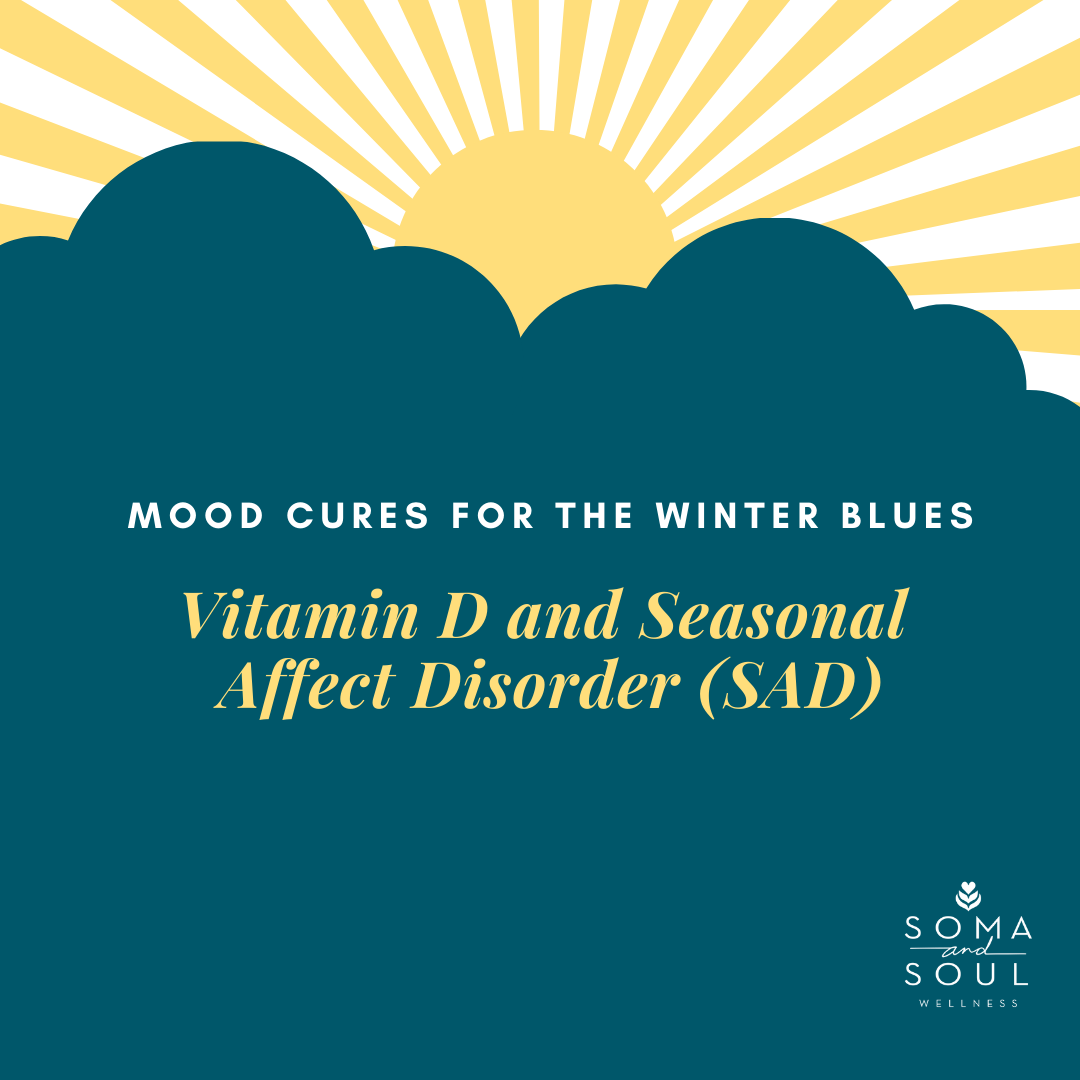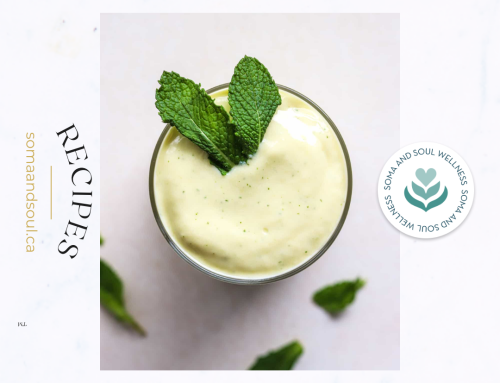Mood Cures for the Winter Blues: Vitamin D and Seasonal Affect Disorder SAD
With the falling back of the clocks, the daylight hours shorten and the chilly temperatures roll
in. As the days darken, you might also notice that your mood tinting gloomy. The concept of
behaviour, psychology, cravings, weight changes, sleep, and energy having seasonal rhythms
has been observed for centuries even documented by the father of medicine, Hippocrates. For
many of us, feeling the general winter blues, otherwise known as SAD, is normal, however others can develop more
serious depression through these colder months.
How do you know if you have Seasonal Affect Disorder? (aka SAD)
Common signs and symptoms of SAD usually begin in the fall and slowly fade as the ground
thaws in early spring. Those that suffer from SAD can experience extreme fatigue and
tiredness, intense carbohydrate and sugar cravings, irritability, agitation, brain fog and difficulty
concentrating, weight gain and feelings of hopelessness and lack of motivation, and socially
withdrawing and isolation. So if you are reading this from the comfort of your bed,
surrounded by Hallowe’en candy wrappers waiting for spring to arrive – this article is for you.
Why do I get the winter blues?
With the lessening hours of sunlight, it is thought that brain chemicals that impact feeling
happy and sleeping well are disrupted, such as serotonin and melatonin. Vitamin D
deficiencies, which increase with the shorter days of sunshine, have also been thought to
contribute to the winter blues.
Is Vitamin D helpful for SAD?
Vitamin D to support SAD have mixed findings. While some say it’s helpful, others argue that it
does not help seasonal affect disorder. The contradiction in the studies use doses of vitamin D
are either too low or a less effective type of vitamin D (D2). A comprehensive review of
vitamin D on depression and anxiety, concluded that treating low levels of vitamin D is an easy
strategy to improve mental wellbeing. In another study, from the University of Toronto,
noticed that people who were suffering from depression, mainly those with SAD, experienced
an improvement in their symptoms when their levels of vitamin D in the body increased over
the course of a year.
How do I know how much vitamin D to take? How do I take vitamin D?
Check with your Naturopathic Doctor or your family physician to have your level tested.
Checking your level of vitamin D requires a simple blood test (*Note: Ontario Health Care, OHIP,
is no longer covering the cost of this test, even though your MD ticks it off on your requisition).
You will need to pay out of pocket for this test, costing you about $38-40. I check my patients’
levels of vitamin D-25 hydroxy status, so that I can make the appropriate dosing
recommendations. Recommendations can range from 400 IU to 10, 000 IU and more.
Remember when taking your vitamin D3, take it together with food. Vitamin D is a fatty
vitamin and therefore, requires fat to optimize it’s absorption. Vitamins that are water soluble,
such as vitamin C or B vitamins, do not require fat for their absorption. You also you pee or poo
out the excess of these water-soluble vitamins when you take more than you need. On the
other hand, fatty vitamins, such as vitamin A, vitamin D, vitamin E and vitamin K need to be
taken with care because taking too much can cause toxicity. Excessive amounts of vitamin D
can cause a build of calcium in your blood, leading to feeling nausea, vomiting, weakness, and
frequent urination. The increase of calcium can also lead to kidney and bone pain and even
cause the formation of kidney stones.
What can you eat for get your Vitamin D (with no sunshine available)?
The richest source of vitamin D is in omega friendly foods, such as salmon, tuna, sardines,
rainbow trout, fish oils, fortified mild and eggs. If you a vegan/vegetarian, you are even more
prone to being deficient than the average Canadian who eats fish and eggs, so you likely
require supplementation. Just remember to have your level checked first so you know how
much to take.
If you want more information on your levels of vitamin D, please click here to book an appointment with Dr.Mary Choi.
Additionally, we offer wellness counselling with Randi-Mae Stanford-Leibold and psychotherapy with Lisa Donnelly.




